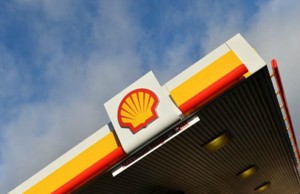Shell pivots back to oil to win over investors
(Reuters) - Shell will keep oil output steady or slightly higher into 2030 as part of CEO Wael Sawan's efforts to regain investor confidence as the energy giant wrestles with poor returns from renewables while oil and gas profits are booming, company sources said.
Sawan will announce at an investor event next week the scrapping of a target to reduce oil output by 1% to 2% per year having already largely reached its goal for production cuts, mainly through selling oil assets such as its U.S. shale business, the three sources said.
Sawan, who took the helm in January with a vow to improve Shell's performance as its shares lag rivals, said oil and gas will remain central to Shell for years to come, insisting that efforts to shift to low-carbon businesses cannot come at the expense of profits.
His more cautious approach to the energy transition marks a change in tack from his predecessor Ben van Beurden who introduced the carbon reduction targets and the energy transition strategy.
Shell scrapped in recent months several projects, including in offshore wind, hydrogen and biofuels, due to projections of weak returns. It is also exiting its European power retail businesses, which were seen only a few years ago as key to its energy transition. At the same time, Shell reported record profits of $40 billion last year on the back of strong oil and gas prices.
Shell declined to comment.
Sawan, a 48-year-old Canadian-Lebanese national, who previously headed Shell's oil, gas and renewables divisions, will detail his vision at the June 14 event in New York, which will include updates on capital allocation, shareholder payouts and "strategic choices we're making," he said recently.
Sawan previously flagged that the 2021 target to cut oil output by 20% the end of the decade was under review.
Shell produced around 1.5 million barrels per day (bpd) of oil in the first quarter of 2023, representing a 20% decline from 2019 production of 1.9 million bpd.
Output is now expected to remain largely flat and could slightly rise by the end of the decade, depending on whether new projects meet internal profitability thresholds as well as on the success of exploration activity, particularly in Namibia, the sources said.
Speculation that Sawan was set to slow Shell's plans to reduce greenhouse gas emission and shift to renewables have angered climate-focused investors.
But Sawan will stick to Shell's target of becoming a net zero emitter by mid-century as part of the Powering Progress energy transition strategy it announced in 2021, which he has described as "still the right strategy."
The shift away from further cuts in oil production at Shell is similar to a move by rival BP made earlier this year when CEO Bernard Looney rowed back from plans to cut its oil and gas output by 40% by the end of the decade.
Returns from oil and gas typically range between 10% to %20, while those for solar and wind projects tend to be between 5% to 8%, according to companies and analysts.
Sawan told investors at Shell's annual general meeting in London last month that "significant investments in oil and gas are needed just to keep production at a constant level, let alone to meet growing demand."
Around two-thirds of Shell's $25 B spending last year went towards oil and gas, while the company invested $4.3 billion in renewables, biofuels, hydrogen and electric vehicle charging.
The gap
A key concern for Sawan has been the significantly weaker performance of Shell's shares since late 2021 compared with its U.S. rivals Exxon Mobil and Chevron, which both plan to grow fossil fuel output.
To narrow that gap, Sawan introduced a sharp focus on performance and returns.
"The direction is unchanged, it's more how do we execute to be able to achieve that and importantly, how do we stay competitive because we are underperforming" peers, Sawan told reporters last month.
"What we need to do is to be excellent at the production of oil and gas and we need to be excellent at creating the low carbon options," Sawan said.
Investors will closely watch new guidance on Shell's shareholder payout plans, with several analysts forecasting a significant increase in the dividend.
"Shell needs to change. Both its absolute pay-out to shareholders and the percentage that arises as dividend are no longer competitive with peers," Exane analyst Lucas Herrmann said in a note.
Herrmann expects Shell to boost its dividend by around 20% and overall payouts to be raised to 35% to 40% of cashflow from operations, compared with the current 20% to 30%.
BP, for example, has said it aims to return 60% of surplus cash flow to shareholders in dividends and share buybacks this year.







Comments